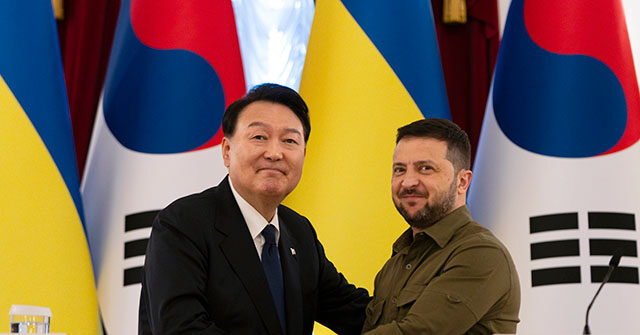On Tuesday, South Korea announced that it is contemplating a series of “phased measures” in response to the increasingly close military collaboration between North Korea and Russia, particularly in light of potential weapons shipments to Ukraine. Recently, South Korea’s National Intelligence Service (NIS) reported that North Korea has committed to dispatching approximately 12,000 troops to assist Russian forces in Ukraine, with the initial group of 1,500 troops already in Vladivostok for training. The NIS indicated that these North Korean soldiers have received Russian uniforms, weapons, and falsified identification documents, suggesting deep levels of cooperation not only in logistics but also in personnel exchange. Such maneuvers have drawn heightened scrutiny from South Korea and the international community, calling into question the implications of this collaboration for regional security.
As the situation further develops, South Korean Defense Minister Kim Yong-hyun noted that it is “highly likely” that some North Korean military officials may have been killed while operating alongside Russian forces in eastern Ukraine. Supporting evidence includes photographic documentation of suspicious Russian ship movements near North Korean ports and sightings of North Korean troops at various locations in Russia. The Ukrainian government has released a video showing North Korean soldiers receiving Russian military gear, underscoring the tangible nature of this collaboration. Ihor Solovey, the head of Ukraine’s Center for Strategic Communications, emphasized the video’s significance as an undeniable instance of North Korea committing personnel to the conflict, alongside material support.
In a bid to stem the tide of North Korean involvement in the conflict, South Korea summoned the Russian ambassador to articulate its demands for the immediate withdrawal of North Korean forces from the region. While Russian Ambassador Georgiy Zinoviev offered assurances that any forms of cooperation would not compromise South Korean security interests, this did little to placate Seoul. South Korean Deputy National Security Adviser Kim Tae-hyo reiterated the demand for withdrawal and condemned North Korea’s actions, likening them to those of a “criminal organization.” If military cooperation between North Korea and Russia persists, South Korea has signaled intentions to respond decisively in alliance with international partners, potentially including the supply of defensive weapons to Ukraine.
As discussions unfold, the South Korean administration under President Yoon Suk-yeol has publicly debated the possibility of providing military aid to Ukraine, especially following a mutual defense treaty established during Russian President Vladimir Putin’s visit to North Korea in June. This treaty signifies a commitment to reciprocal assistance in times of aggression. Analysts from the U.S.-based Institute for the Study of War (ISW) have noted that Russia, despite earlier confident dismissals, now appears increasingly worried that it has overstepped with South Korea and is striving to mitigate any burgeoning tensions as Seoul begins to move towards offering military support to Ukraine.
The U.S. and NATO have exhibited caution in addressing South Korea’s allegations concerning North Korean troops engaged in combat for Russia, refraining from concrete affirmations or denials of these reports. NATO Secretary-General Jens Stoltenberg discussed collaboration and interconnected security interests with President Yoon, highlighting the implications should North Korea formally send troops to support Russian efforts in Ukraine. Although U.S. officials have been skeptical regarding claims that a substantial number of North Korean soldiers are already in combat roles, they acknowledge the possibility of North Korean personnel serving in supportive capacities alongside Russian forces in Ukraine, raising further concerns about the evolving dynamics of the conflict and the possible destabilization within the region.
As the situation continues to evolve, the prospect of a wider conflict looms on the horizon, thus underscoring the urgency for diplomatic and military responses from South Korea and its allies. The intertwining of North Korean and Russian military efforts not only risks escalating the Ukraine conflict but may also have broader implications for security frameworks throughout East Asia. The potential for South Korea to adopt an assertive military posture aligns with broader international concerns about balancing power dynamics and maintaining regional stability as both North Korea and Russia continue to engage in cooperative military practices.

